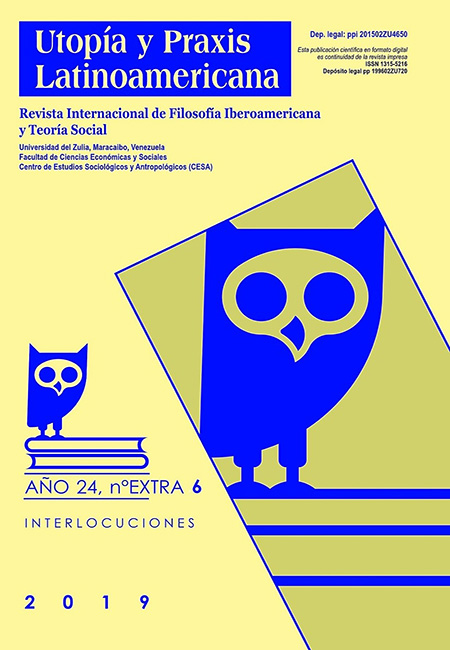Comparative study of the positive value of unlawful testimony in civil proceedings
Resumen
ABSTRACT
In the Islamic judicial system, testimony is one of the most important arguments to prove a claim. The validity of testimony depends on the credibility and the number of witnesses. If the testimony lacks the requisite terms and conditions, its validity is shaken. In this paper, we examine the "positive value of unqualified testimony" and refer to its jurisprudential background after presenting the contradictions and ambiguities of domestic law regarding the positive value of such testimony. From the nature of the jurisprudence's testimony, it can be concluded that this type of testimony lacks any positive value.
RESUMEN
En el sistema judicial islámico, el testimonio es uno de los argumentos más importantes para probar un reclamo. La validez del testimonio depende de la credibilidad y el número de testigos. Si el testimonio carece de los términos y condiciones requeridos, su validez se ve sacudida. En este documento, examinamos el "valor positivo de un testimonio no calificado" y nos referimos a sus antecedentes jurisprudenciales después de presentar las contradicciones y ambigüedades de la ley interna con respecto al valor positivo de dicho testimonio. Por la naturaleza del testimonio de la jurisprudencia, se puede concluir que este tipo de testimonio carece de valor positivo.
Citas
BIBLIOGRAPHY
ABUALFARAJ, M (2011). “Evidence in Islamic law: reforming the Islamic evidence law based on the federal rules of evidence”, in: Journal of Islamic Law and Culture, 13(2-3), pp.140-165.
AGRIC, A (2014). Criminal Procedure Code, Vol. 2, Tehran, Mo.
ASHOURI, M (2009). Criminal Procedure, Vol. 1, Tehran, Khomeh Publications.
ASHTIANI, MMH (1983). Al-Qaddah Book, Qom, Daroljahra.
BAHRAMI, B (2013). The Requirements of Proof of Evidence, Tehran, Negah Publication.
BLACK, A (2012). “Court ceremonies, ritual and symbolism: How Islamic law and English common law are conceptualised and apply to an unlawful killing”, in: Griffith Law Review, 21(2), pp.499-532.
DARVISHZADEH KAKHAKI, M (2014). “Regulatory and Systematic Analysis in the Judicial System”, in: Judicial Law Views Quarterly, No. 68, pp.206-281.
DIANI, AR (2015). Evidence of Proof of Civil and Criminal Proceedings, Tehran.
FAZAELI, M (2015). Fair Trial of International Criminal Trials, Tehran, Danesh Publications.
GARRETT, BL, & NEUFELD, PJ (2009). “Invalid forensic science testimony and wrongful convictions”, in: Virginia Law Review, pp.1-97.
GHAMAMI, M, & MOHSENI, H (2013). Transnational Civil Procedure, Tehran, Corporation Publication.
GOLDOZIAN, I (2007). Proof of Proof of Claim, Tehran, Mian Publishing.
GOLDOZIAN, I (2015). Implementation of Islamic Penal Code, Tehran, Majd Publications.
GOLPAYEGANI, SMR (1980). Al-Qaddah Book 1, Qom, Mutlab al-Khayyam.
HAERI, SK (1994). al-Qaddah al-Fiqh al-Islami, Qom, al-Fiqer al-Islami.
JAFARI LANGROUDI, MJ (2013). Law Terminology, Tehran, Ganj Danesh Publications.
KATOOZIAN, N (2004). Proof and Reason for Proof C2, Tehran, May.
KATOUZIAN, N (2000). Judicial Justice (Collection of Opinions), Tehran, Justice Publishing.
KATOUZIAN, N (2008). Proof and Reason for Proof, Volume 2.
KATOUZIAN, N (2011). Proof and Proof of Proof, Vol. 1, Tehran, Mo.
KHORSANDIAN, MA (2003). “Review of the Jurisdiction of the Judge in Iranian Jurisprudence and Jurisprudence”, in: Law Journal of Justice, No. 43, pp.11-42.
MARAGHEY, M (1998). Titles, Qom, Teachers' Association.
MARTIRE, KA, & KEMP, RI, (2009). “The impact of eyewitness expert evidence and judicial instruction on juror ability to evaluate eyewitness testimony”, in: Law and Human Behavior, 33(3), pp.225-236.
MOUZEN ZADEGAN, HA (2000). “Judge Science in Iranian Penal Law”, in: Journal of Research in Law and Politics, Nos. 2 and 3, pp.177-212.
NESHEIWAT, FK (2004). “Honor crimes in Jordan: their treatment under Islamic and Jordanian criminal laws”, in: Penn St. Int'l L. Rev., 23, p.251.
PETERS, R (2005). Crime and punishment in Islamic law: Theory and practice from the sixteenth to the twenty-first century (No. 2). Cambridge University Press.
RAHNI, MRM, & KAVOUSI, P (2014). “Relatives’ Testimony in Courts from the Viewpoint of Iran Law”, in: J. Appl. Environ. Biol. Sci, 4(4S), pp.8-11.
RAMADAN, T (2009). Islam, the West and the Challenges of Modernity. Kube Publishing Ltd.
ROGERS, TL, & ALLARD, TT (2004). “Expert testimony and positive identification of human remains through cranial suture patterns”, in: Journal of Forensic Science, 49(2), pp.1-5.
SHAHROUDI, SM (1999). Criminal Jurisprudence Requirements, Tehran.
SHAMS, A (2011). Civil Procedure Code C3, Tehran, Drak.
SHAMS, A (2015). Proof of Proof of Claim, Tehran, Drake.
SHEIKH ANSARI (1994). al-Qaddah and al-Shahadat, Qom, al-Mutmar al-Alami.
SOBHANI, J (2006). A Critique of Hermontics, Qom, Imam Sadegh.
TADIN, A (2012) Studying the Reason in Criminal Proceedings, Tehran.
TAVAKOLI, S (2006). “The Value of Testimony and Limited Credibility in the Iranian Legal System”, in: Journal of Jurisprudence, No. 56.
WARREN, CS (2010). Islamic criminal law: Oxford bibliographies online research guide. Oxford University Press.
YARMEY, AD (2001). “Expert testimony: Does eyewitness memory research have probative value for the courts?”, in: Canadian Psychology/Psychologie canadienne, 42(2), p.92.
YUSLAN, SN, & ROSANTO, S (2019). “Reconstruction of Expert Testimony For Determining The Judge Considering iIn The Corruption Case Based On Justice”, in: Law Development Journal, 1(1), pp.18-24.
ZARAAT, A, & HAJIZADEH HR (2009). Proof of Proof of Claims, Kashan, Law-Law Publications.









